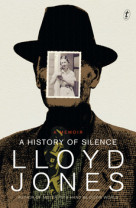Just as a city built on swamp and peat is vulnerable — so, too, is a family built on secrets and silences.
New Zealand author, Lloyd Jones, said the earthquake that hit Christchurch on February 22, 2011, cracked the city open “like an eggshell”.
Five weeks later, he visited the city and found it was “disassembling”.
But what if he disassembled, too?
Shaken by the earthquake, Jones is determined to dig through the layers of mystery surrounding his origins: Is there more to his family tree than he’s been told?
The short answer is yes. The long answer can be found in this marvellous memoir.
Jones has several novels to his name but is probably most well known for Mister Pip — published in 2006 and released later as a feature-length film. He brings considerable novelistic skill to this memoir — and it adds zest. The language is lush, the pacing is perfect and the episodes from his forebears’ history spring vividly from his pen into life.
Jones chips away at the peaty past asking questions and following threads that lead him to archives and invoices, houses and landscapes of significance. He discovers names and narratives, photographs and film footage.
Some of his discoveries shock.
Jones and his siblings had grown up reviling a woman called Maud because she’d given his mother away when she was four-years-old.
Maud had never deigned to contact her daughter again.
Discovering a 180-page transcript of Maud’s divorce trial from the 1920s showed Jones a different side to his maternal grandmother. It explained why she’d given her daughter away and her deep despair over doing so. It highlighted the public shame to which she was subjected — firstly as “a fallen woman” and then as a divorcee.
Jones’s mother, Joyce, also never knew her biological father — so when Jones makes contact with his grandfather’s relatives and visits the family homestead it reverberates.
“How strange it was, how extraordinary,” he writes, “to stand in the room where my mother was conceived, and to breathe in the sooted air of this old ruin where the conditions of my childhood — absence, silence, repudiation of the past — were cast.”
Of seeing his great-grandfather’s picture, Jones writes, “I’ve never felt more unoriginal than the moment I looked upon Richard Evans.”
Jones also told Ramona Koval in an interview in The Monthly last September that it was a humbling and exciting discovery to see pieces of himself so clearly in the family members that preceded him.
His father roars back to life
Jones writes of being surprised, when he visited Wales, that the landscape did not speak to him as he’d anticipated — although he had had “the uncanny feeling of familiarity I felt in a place that I had never [before] visited”.
It was also in Wales that a certain register of voice had managed to bring his father “roaring back to life”.
Jones’s father, Lew, was adopted out when he was a toddler after his mother died from hydatids. Lew’s father was said to have drowned at sea.
Given that both his parents had such rickety beginnings, it’s not altogether surprising that Jones gives his street name and number when he’s asked in class where he is from.
The sniggering alerts him that he’s given the wrong answer. “Something else was meant by the question. But, thanks to Maud and the mysterious farmer and the drowned-at-sea man from Pembroke Dock and the one who died of hydatids, I have arrived into a potholed world.”
Jones tells a number of decidedly eerie stories throughout A History of Silence and one of my favourites involves a painting he sees in a shop window in Hastings, England.
With its crescent bays and chipped coastal hills, he thinks the painting is of Pencarrow in Wellington, where he has often walked “burrowing into the wind”.
Looking closer at the picture, he discovers it actually is of Pembroke Dock in Wales, “the birthplace of my grandfather on my father’s side, a figure of lore, as I only ever heard him spoken of as ‘the Welsh naval captain who drowned at sea’”.
Jones is one of five children and, rather than being told about the “indecency” of his mother’s late-in-life pregnancy, he was told he was found under a cabbage leaf.
My sense is that this coyness and the other family mythologies exposed in A History of Silence have honed rather than harmed the imagination of one of New Zealand’s finest contemporary writers.
Reading the closing paragraphs of his memoir should prove this to you — as they contain a haunting description of Jones watching family footage and seeing the grandfather he never knew appear in frame on a tractor then fade from view.
To further convince you, I’ll close this post with one of Jones’s fabulous flights of fancy. It’s certainly made me think that a little confusion surrounding a writer’s identity (and in this case Welsh-ness) can enrich that writer’s prose.
“And were I to suffer a personal earthquake and be split open, I am quite certain a team of awkward blokes would scramble out of me with a pint in one hand and a balled fist in the other, and that the temptation to fight would be confused with one to sing. Another mob would split to the hills without so much as a backward glance and a smaller constituency would make for the ridges and beneath a low sky set a course for the distant headland.”
A History of Silence: A Memoir
Lloyd Jones
Text Publishing, $32.99




Recent Comments